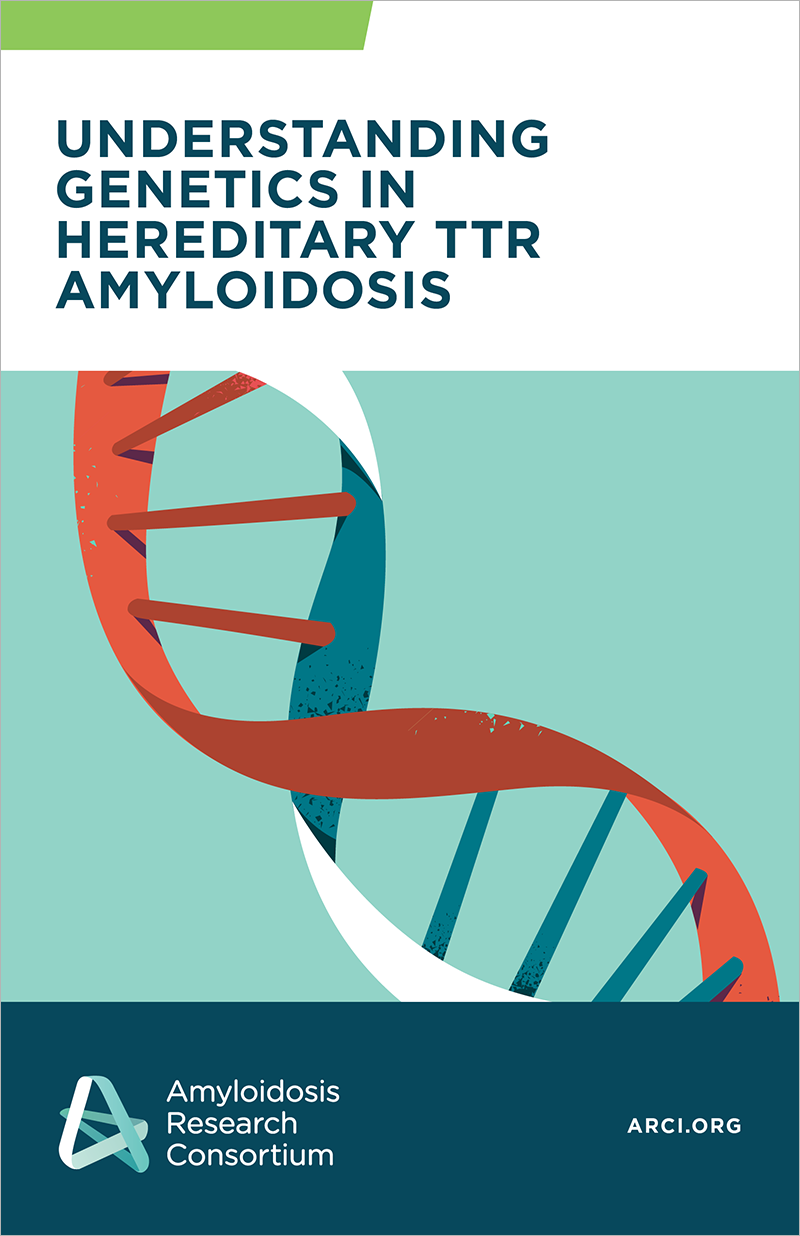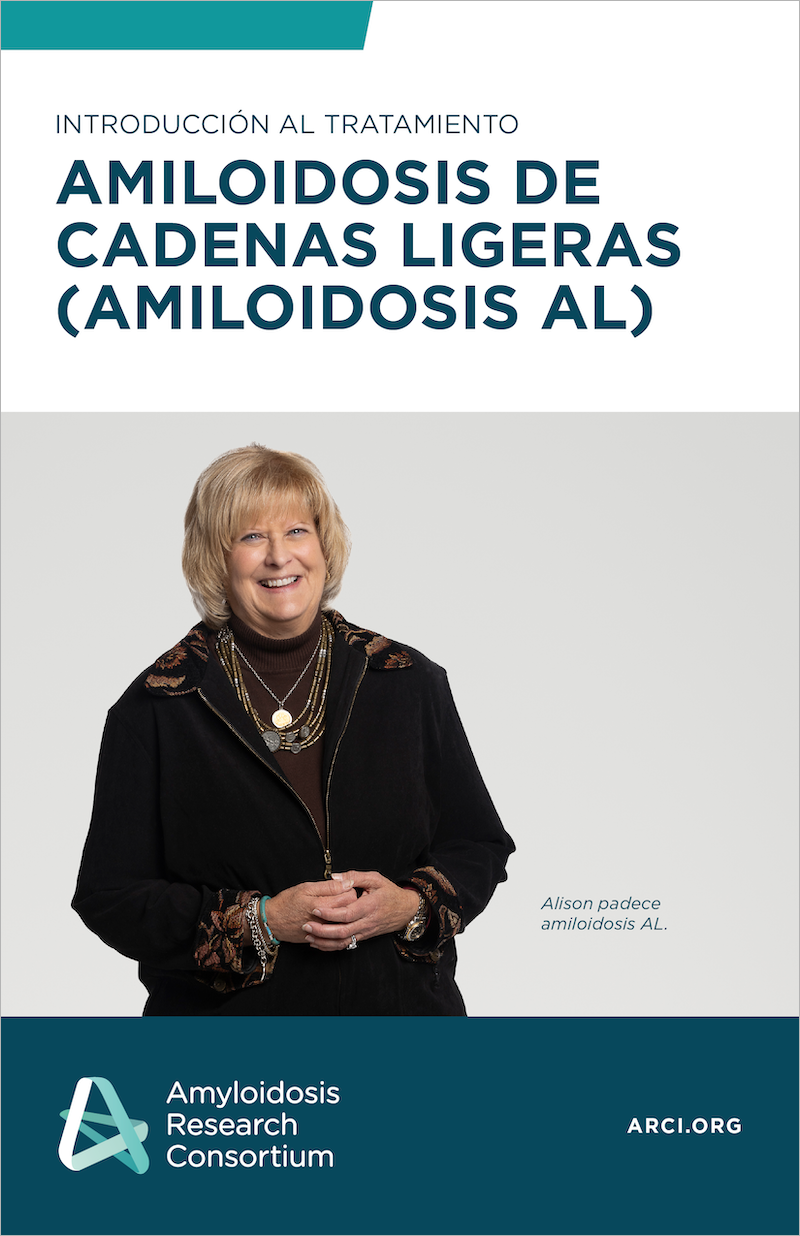Resources
ARC provides patients and healthcare professionals with the latest, up-to-date resources to
help improve treatment and care of patients with amyloidosis.
AL Amyloidosis
Webinars
Webinars
Clinical Trial Updates for the AL Community
In this ARC TALKS webinar, ARC's own Kristen Hsu presented the most current updates for the clinical trial landscape, with a focus on AL amyloidosis. Kristen also discussed the direction future research.
Read More
AL Amyloidosis

Library
Hereditary ATTR Amyloidosis
Patients
Hereditary ATTR Amyloidosis
Patients
Understanding Genetics in Hereditary ATTR Amyloidosis
There are over 120 different mutations that have been identified in the TTR gene and as research continues, it is possible that more may be discovered. Each mutation causes a different pattern of disease onset, symptoms and outlook.
Read More
Library
AL Amyloidosis
Webinars
Hereditary ATTR Amyloidosis
Wild-Type Amyloidosis
Other Types of Amyloidosis
Webinars
Hereditary ATTR Amyloidosis
Wild-Type Amyloidosis
Other Types of Amyloidosis
GI Disturbances and Symptom Management
In this ARC TALKS webinar Dr. Sara Horst discussed how amyloidosis can impact the gastrointestinal tract, GI symptoms, and symptom management.
Read More
AL Amyloidosis

AL Amyloidosis
Library
Patients
Library
Patients
Introducción a la Enfermedad: Amiloidosis de Cadenas Ligeras (Amiloidosis AL)
Un diagnóstico de amiloidosis de cadenas ligeras (amiloidosis AL) puede ser confuso y estresante, lo que da lugar a muchas preguntas y sentimientos. Es fundamental que aprenda todo lo que pueda sobre la enfermedad, su tratamiento y cómo le podría afectar.
Read More
AL Amyloidosis

AL Amyloidosis
Library
Patients
Library
Patients
Introducción al Tratamiento: Amiloidosis de Cadenas Ligeras (Amiloidosis AL)
La amiloidosis AL es una enfermedad grave que puede ser progresiva y mortal si no se trata. Sin embargo, muchos pacientes se benefician de los tratamientos actuales, lo que mejora y prolonga su vida, a menudo durante varios años.
Read More
AL Amyloidosis
Webinars
Hereditary ATTR Amyloidosis
Wild-Type Amyloidosis
Hereditary ATTR Amyloidosis
Wild-Type Amyloidosis
Clinical Trial Updates for the ATTR Community
In this ARC TALKS webinar, ARC's own Kristen Hsu presented the most current updates for the clinical trial landscape, with a focus on ATTR amyloidosis.
Read More
Webinars
AL Amyloidosis
Webinars
Hereditary ATTR Amyloidosis
Wild-Type Amyloidosis
Other Types of Amyloidosis
Webinars
Hereditary ATTR Amyloidosis
Wild-Type Amyloidosis
Other Types of Amyloidosis
Physical Therapy for Amyloidosis Management
In this ARC Talks webinar, physical therapists Kelsi Schiltz, and Katie Johnson provided recommendations for managing neuropathy symptoms.
Read More
AL Amyloidosis
AL Amyloidosis
Webinars
Hereditary ATTR Amyloidosis
Wild-Type Amyloidosis
Other Types of Amyloidosis
Webinars
Hereditary ATTR Amyloidosis
Wild-Type Amyloidosis
Other Types of Amyloidosis
Visualizing Amyloidosis: The Role of Imaging
In this ARC Talks webinar for patients, Dr. Sharmila Dorbala explained the role that medical imaging techniques play in both diagnosing and managing amyloidosis.
Read More
AL Amyloidosis



